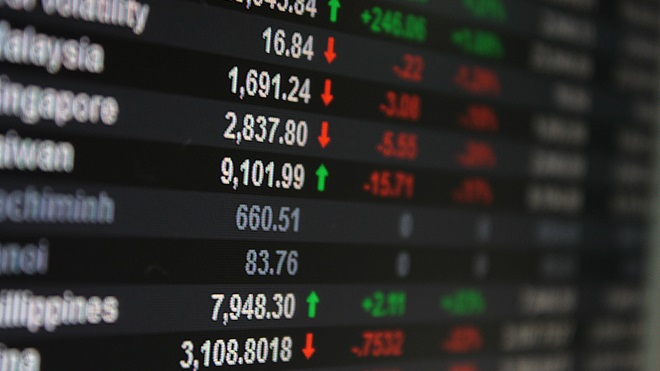Need to know
- The consensus from experts is not to panic at the impact of the coronavirus on the share market
- The market disruption can, however, be a good opportunity to consider whether the risk level of your super is right for your age and goals
International share markets have been on a roller-coaster since the COVID-19 coronavirus hit headlines, recording both dizzying highs and lows.
Super funds have reported an increase in members contacting them and wanting to know if their retirement savings are safe.
So, what should you do with your super as the market fluctuates?
In most cases, nothing.
No need to panic
It'd be easy to be alarmed about the impact the public health crisis is having on the share market and, by extension, your retirement savings.
The consensus from experts, however, is that now is not the time to make major changes to your super.
Scott Pape, author of the Barefoot Investor books, says that trying to move your super around to counter the impact of the coronavirus is a bad idea.
"Do I think that people know how the coronavirus will play out? The answer is unequivocally no," he explains.
These tragedies impact people but they're short-term health crises, not long-term financial crises
Scott Pape, author, The Barefoot Investor
"I wouldn't be looking to financial experts to tell me what's going to happen next.
"If you look at history, these tragedies impact people but they're short-term health crises, not long-term financial crises. In the long term, we know the share market goes up."
The share market has historically rebounded strongly after dips caused by other public health crises such as Ebola, SARS and swine flu.

Sharemarkets are taking a hit in the wake of coronavirus fears, but experts say now's not the time to make major changes to your super.
Review your risk strategy
While nobody is encouraging super fund members to panic, it could be a good opportunity to review whether the risk level of your super is right for you.
The accepted wisdom is that younger people can have their super invested with a more high risk/high return strategy (including more exposure to shares) when retirement is some way off and they're still accumulating retirement savings.
Pape suggests people approaching retirement build up a 'cash buffer' to keep some of their nest egg out of the ups and downs of the market
For people who've already built up their retirement savings, a more conservative approach (with less exposure to shares) might make more sense. You don't want to be the person exiting the market just after a crash.
"Should you be doing anything with your super? Yes," says Pape. "But should it be in reaction to the coronavirus? No, it should be about making sure you have the appropriate risk for your age and your risk tolerance."
He suggests people approaching retirement build up a 'cash buffer' to keep some of their nest egg out of the ups and downs of the market.
Many super funds also give you the ability to reallocate where your super is invested through their online platforms. This can include allocating some of your super (or just new contributions from your employer) into a conservative option like cash if you're looking for a low risk/low return strategy to protect your savings.
The stock market's on sale and we know the stock market always goes higher
Scott Pape, author, The Barefoot Investor
A financial planner can also help you with the risk profile of your super if you're unsure – see our guide on how to find a good financial adviser.
For people who aren't approaching retirement, a market downturn like this one can actually be good for their nest egg in the long run.
"Anyone under the age of 40 should be cheering the market going down," says Pape. "The stock market's on sale and we know the stock market always goes higher."
Focus on the fundamentals, like fees
Pape suggests ignoring the urge to try to ride the waves of the market. Instead, he says you should ensure you're not paying too much in fees. "They're one thing you can control," he says.
The Productivity Commission previously highlighted the impact high fees can have on your retirement savings. A seemingly minor increase in fees of 0.5 percentage points can cost a typical full-time worker a staggering $100,000.
As a rule of thumb, you should look for total fees of 1% or under for your super. This will have a major impact on how much you end up with in retirement, coronavirus or not.
This content was produced by Super Consumers Australia which is an independent, nonprofit consumer organisation partnering with CHOICE to advance and protect the interests of people in the Australian superannuation system.
We're on your side
For more than 60 years, we've been making a difference for Australian consumers. In that time, we've never taken ads or sponsorship.
Instead we're funded by members who value expert reviews and independent product testing.
With no self-interest behind our advice, you don't just buy smarter, you get the answers that you need.
You know without hesitation what's safe for you and your family.
And you'll never be alone when something goes wrong or a business treats you unfairly.
Learn more about CHOICE membership today
Stock images: Getty, unless otherwise stated.




